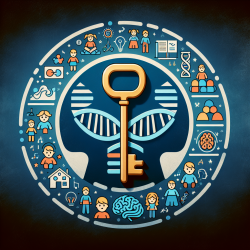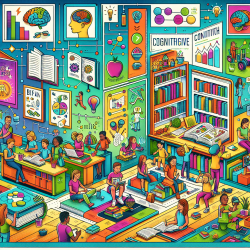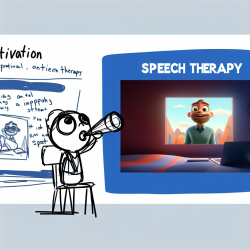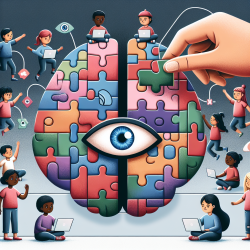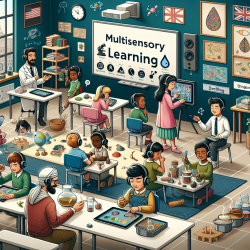Introduction
In the ever-evolving field of speech-language pathology, understanding the genetic underpinnings of neurodevelopmental disorders can significantly enhance our therapeutic approaches. The recent study on the TLK2 gene variant, published in the European Journal of Human Genetics, offers valuable insights that can inform and transform clinical practices. This blog post aims to distill the key findings of the research and suggest ways practitioners can leverage these insights to improve outcomes for children with severe neurodevelopmental disorders.
Understanding the TLK2 Variant
The TLK2 gene encodes a kinase involved in crucial cellular processes such as DNA replication and chromatin assembly. Variants in this gene have been linked to intellectual disabilities and distinct neurodevelopmental phenotypes. The study identified a homozygous missense variant in TLK2 associated with severe symptoms, including motor and language delays, and structural brain anomalies.
Implications for Speech-Language Pathology
Understanding the genetic basis of speech and language disorders can lead to more targeted and effective interventions. Here are some practical ways speech-language pathologists can integrate these findings into their practice:
- Individualized Assessment: Incorporate genetic testing and family history into the assessment process to better understand the etiology of the disorder.
- Targeted Interventions: Develop personalized therapy plans that address the specific genetic and phenotypic characteristics of the disorder.
- Collaborative Care: Work closely with geneticists and neurologists to create a comprehensive care plan that addresses all aspects of the child's development.
Encouraging Further Research
The findings from the TLK2 study underscore the importance of continued research into the genetic factors contributing to neurodevelopmental disorders. Practitioners are encouraged to stay informed about the latest research and consider participating in studies that explore the genetic bases of speech and language disorders.
Conclusion
By embracing a data-driven approach and integrating genetic insights into clinical practice, speech-language pathologists can significantly enhance the quality of care provided to children with neurodevelopmental disorders. The TLK2 variant study is a reminder of the potential that lies in understanding the genetic factors influencing speech and language development.
To read the original research paper, please follow this link: Severe neurodevelopmental disease caused by a homozygous TLK2 variant.
